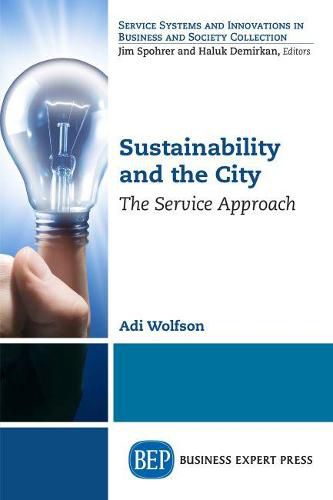Readings Newsletter
Become a Readings Member to make your shopping experience even easier.
Sign in or sign up for free!
You’re not far away from qualifying for FREE standard shipping within Australia
You’ve qualified for FREE standard shipping within Australia
The cart is loading…






This title is printed to order. This book may have been self-published. If so, we cannot guarantee the quality of the content. In the main most books will have gone through the editing process however some may not. We therefore suggest that you be aware of this before ordering this book. If in doubt check either the author or publisher’s details as we are unable to accept any returns unless they are faulty. Please contact us if you have any questions.
Cities are without a doubt one of the miracles of human creation and the embodiment of the human environment. Insofar as they are large and densely populated human settlements with defined legal and political boundaries that comprise clusters of buildings, open spaces, public facilities and infrastructure, cities are mainly spaces of services that are exchanged between a wide variety of stakeholders- namely, residents, traders, visitors, and the city authorities. Moreover, the provision of cities’ services has profound effect on the local and global sustainability. Thus, municipal services should comprise environmental, social, and economic values, which are designed, produced, and delivered in concert.
Over the years, a variety of new urban models and concepts have been designed and proposed as viable means to reestablish the bond between the human and the natural environments, to increase the quality of life within cities, and to reduce the impacts that cities have on the social and natural environments (e.g., sustainable city, smart city, or resilient city). Herein, a new model of the service-city is presented, including architecture and several pertinent examples, which considers it as a platform that manages and integrates the services and systems currently provided by the city while offering additional supporting services to increase the effectiveness of the value and to achieve the goal of sustainability.
$9.00 standard shipping within Australia
FREE standard shipping within Australia for orders over $100.00
Express & International shipping calculated at checkout
This title is printed to order. This book may have been self-published. If so, we cannot guarantee the quality of the content. In the main most books will have gone through the editing process however some may not. We therefore suggest that you be aware of this before ordering this book. If in doubt check either the author or publisher’s details as we are unable to accept any returns unless they are faulty. Please contact us if you have any questions.
Cities are without a doubt one of the miracles of human creation and the embodiment of the human environment. Insofar as they are large and densely populated human settlements with defined legal and political boundaries that comprise clusters of buildings, open spaces, public facilities and infrastructure, cities are mainly spaces of services that are exchanged between a wide variety of stakeholders- namely, residents, traders, visitors, and the city authorities. Moreover, the provision of cities’ services has profound effect on the local and global sustainability. Thus, municipal services should comprise environmental, social, and economic values, which are designed, produced, and delivered in concert.
Over the years, a variety of new urban models and concepts have been designed and proposed as viable means to reestablish the bond between the human and the natural environments, to increase the quality of life within cities, and to reduce the impacts that cities have on the social and natural environments (e.g., sustainable city, smart city, or resilient city). Herein, a new model of the service-city is presented, including architecture and several pertinent examples, which considers it as a platform that manages and integrates the services and systems currently provided by the city while offering additional supporting services to increase the effectiveness of the value and to achieve the goal of sustainability.